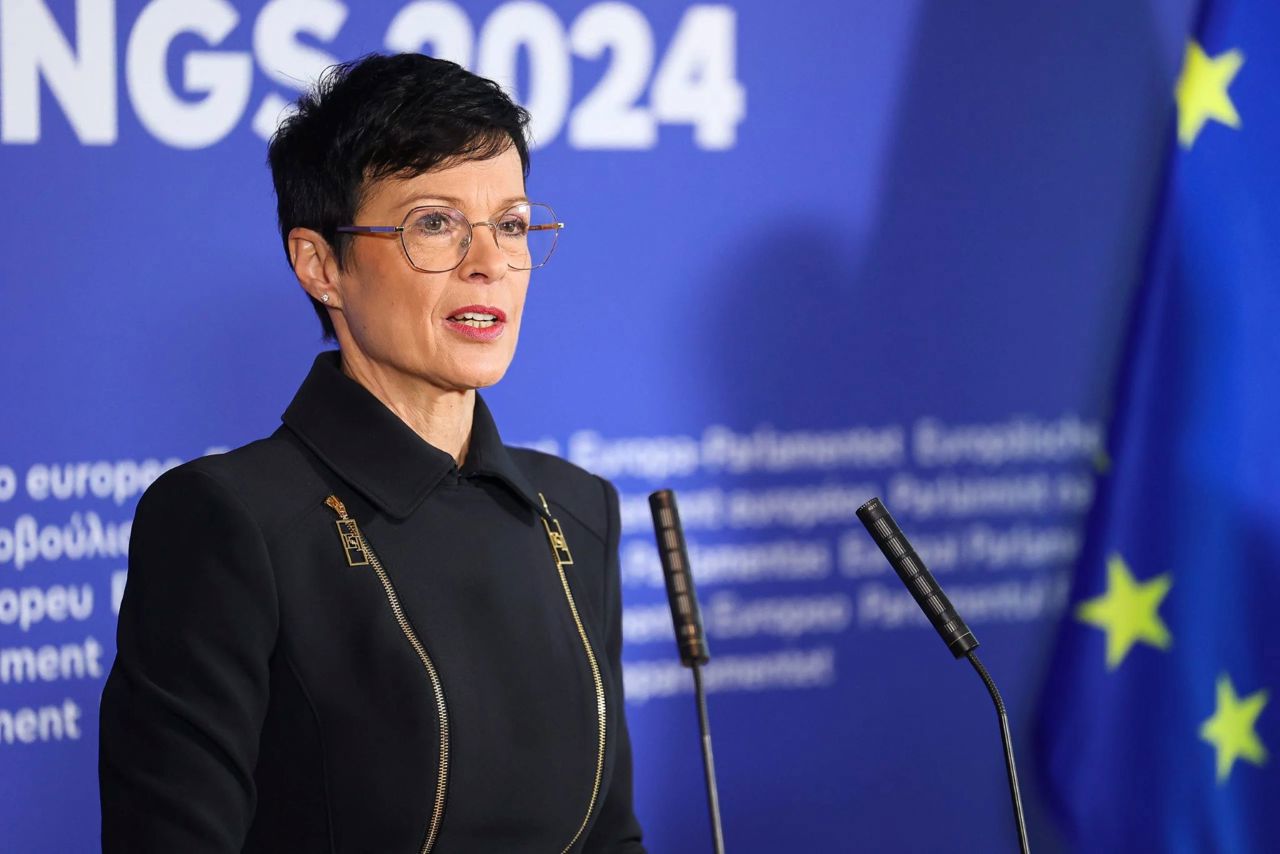EU Commissioner Kos is concerned about changes to NABU and SAPO: Svyrydenko did not convince the EU
23 July 02:21
European Commissioner for Enlargement Martha Kos spoke with Ukrainian Prime Minister Yulia Svyrydenko and Deputy Prime Minister for European Integration Taras Kachka after the parliament’s decision to limit the powers of anti-corruption agencies. Kos wrote about this on her page on the social network X, "Komersant Ukrainian" reports
She was referring to Bill 12414, which the Verkhovna Rada adopted as a law on July 22, and which concerns changes to the CPC regarding the distribution of powers of the NABU, the SAPO and the Prosecutor General.
The European Commissioner noted that the conversation with Svyrydenko and Kachka was “frank”.
“She expressed serious concern about the recent developments in the rule of law, especially the amendments to the law on NABU and SAPO,” she wrote.
Martha Kos assured that the European Union will continue to work with Ukraine on the necessary rule of law reforms and on its path to the EU.
Earlier, Kachka said that in a conversation with Martha Kos, he had assured her: Ukraine is not turning away from the rule of law and anti-corruption reforms.
“I emphasized that today’s decisions of the Verkhovna Rada are not intended to jeopardize the institutional independence of the NABU and the SAPO. All their key functions remain inviolable. There will be no compromises in the fight against corruption – Ukraine takes this responsibility seriously. Our reform agenda and accession commitments remain fully in place,” the Deputy Prime Minister assured.
Earlier, Kos emphasized that she was “seriously concerned” about the outcome of the Verkhovna Rada’s vote on draft law 12414 and called it a “serious step backwards.”

What you need to know about draft law No. 12414
The draft law was initiated by MPs Maksym Pavliuk, Viacheslav Medianyk, Oleksandr Bakumov, and Serhiy Minko.
The document was registered in the Verkhovna Rada on January 16, 2025. On April 29, the bill was adopted as a basis. On Tuesday, July 22, the law was adopted (263 MPs pressed the green button) and sent to the President of Ukraine for signature.
Officially, the document concerns amendments to the Criminal Procedure Code regarding the investigation of disappearances under special circumstances during martial law. But, according to MP Anastasia Radina, it has been amended to actually subordinate the NABU and the SAPO to the Prosecutor General.
In particular, the law gives the Prosecutor General the following powers
- access to all NABU cases and delegate this access to other prosecutors;
- provide written instructions to NABU detectives and change the jurisdiction of cases;
- to independently resolve disputes over jurisdiction and sign suspicions to top officials;
- exclusively decide who is part of the group of prosecutors, depriving the head of the SAPO of this right;
- to close investigations at the request of the defense.
On the eve of the adoption of the draft law, the SBU and the Prosecutor General’s Office announced that they had exposed Russian influence on the NABU. According to law enforcement officials, some NABU employees are accused of treason, illegal trade with Russia, and working in the interests of oligarchs. In total, at least 70 searches have been conducted.
What the bill says
Ukraine is planning to introduce new legal mechanisms to more effectively investigate cases of disappearances in the war. The relevant draft law was developed due to the growing number of missing persons in the areas of hostilities and in the temporarily occupied territories. Its main goal is to ensure a prompt response by investigative bodies and to provide families of the disappeared with more access to legal instruments.
Russia’s armed aggression has created circumstances where traditional pre-trial investigation rules often do not work. Lack of access to territories or witnesses, risks for investigators and victims all slow down or make investigations impossible. Lawmakers are seeking to adapt the legal system to new realities.
The draft law proposes to give prosecutors the right to independently determine the place of pre-trial investigation in cases of disappearances under special circumstances. This refers to investigations under Articles 115 (premeditated murder with a note “missing”), 146-1 (enforced disappearance) and 438 (war crimes) of the Criminal Code of Ukraine.
The amendments to Article 615 of the CPC will allow the investigation to be transferred to another region, for example, to the place of residence of the applicant or the victim. This will ensure easier access of relatives to the investigation and reduce administrative and psychological pressure on the families of the disappeared.
In addition, the draft law stipulates that prosecutors will be able to use these powers for another three years after the end of martial law.
Currently, the Criminal Procedure Code of Ukraine does not contain procedures that take into account the specifics of the armed conflict. The Law “On the Legal Regime of Martial Law” does not regulate the procedural aspects of pre-trial investigation, and the Law “On the Legal Status of Missing Persons” does not provide for a special investigative regime for wartime. The proposed draft law fills this legal gap.
The authors of the draft law emphasize that it does not provide for additional expenditures from the state budget. It is only about procedural changes that will increase flexibility and efficiency in responding to disappearances.
The initiators of this document also assure that it will strengthen legal protection for families of disappeared persons and allow law enforcement agencies to adapt their work to emergency circumstances. It is expected to increase trust in state institutions, improve the quality of pre-trial investigations, and facilitate faster search for missing persons.
Follow us on Telegram: main news in brief









